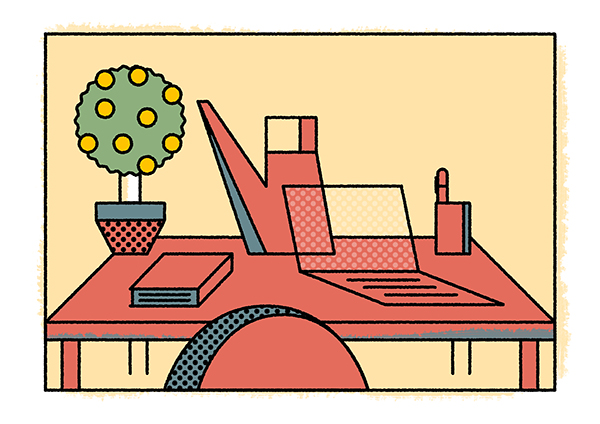What you need to know about the student loan system (as a current student)
Gepubliceerd: 16 April 2015 • Leestijd: 3 minuten en 21 seconden • English Dit artikel is meer dan een jaar oud.Students of today. You are the lucky ones. You will steer clear of the student loan system that will take effect as of next academic year. But what happens if you switch, overrun, or want to pursue your Master’s?

This article was updated on November 21, 2014.
I want to switch
If you took up a course of study before September 2015, you retain the right to a student grant. Even if you switch your course of study. But those who switch should note: if your studies take longer than four years because of your switch, the student loan system will apply to you. Your monthly student grant and supplementary grant will run out (because you will have exceeded the nominal 4-year course of study). You will keep your public transport card for one more year. You can get a loan from the government for another three years – under the terms of the new student loan system.
I want to take a one-year break
You may have personal reasons for wanting to take a one-year break from studying (and your student grant). Does that mean the student loan system will still apply to you in the fourth year of your studies? The answer is no. After this break year, you can resume your studies without having lost the right to a student grant.
My studies are taking longer than four years
In the current system, you receive a four-year student grant. If you overrun, you will keep your public transport card for one more year, but you will continue to study at your own expense or through a loan from DUO.
If students overrun and start the fifth year of the Bachelor’s degree program, they leave the old student grant behind and fall under the student loan system. Because of their study period, they are no longer entitled to the supplementary grant anyway, but they can still get a loan for three years (under the new terms of the student loan system), and they will get a public transport card for one more year, as is the case at present.
I would like to pursue my Master’s after getting my Bachelor’s degree from an institution of higher professional education
As of September 2015, the student loan system will apply to new bachelor and master students. If you start studying for your Master’s after getting your Bachelor’s degree from an institution of higher professional education, you are a new master student and will therefore fall under the student loan system. The new law also determines that you will pay the regular legal tuition fees (or part of these, if the course load is less than 60 ECTS) for a bridging program instead of the much more expensive institutional tuition fees.
Will I have to pay back two types of student loans in the future?
What will happen with bachelor students to whom the old rules currently apply, but who will have to deal with the new ones during their Master’s or if they overrun? How will they be paying their student loan back in the future? Will DUO be charging two different monthly amounts? No, these students may choose whether they want to redeem according to the rules of the old or new student grant.
Esmé van der Molen
- Students who start studying for a new bachelor study or master’s program in September 2015 fall under the student loan system.
- The basic grant will disappear. Students can, however, get a loan on favorable terms (low interest, long repayment period of 35 years, only obliged to redeem with an income exceeding the statutory minimum wage of 19,253 euros). The public transport card continues to exist, as does the supplementary grant.
- Students can decide whether they want to get a loan. The maximum loan is 986 euros a month.
- You are entitled to a supplementary grant if your parents’ income is less than 46,000 euros. The supplementary grant is increased in the new system. Its amount depends on your parents’ income. If it’s under 30,000 euros a year, you will get the maximum supplementary grant (365 euros).
- The student loan system is a performance-related education grant (similarly to the current student grant). The amount that you received apart from your loan (supplementary grant, costs of the public transport card, and a single-parent allowance, if any) is changed into a donation if you get your degree within ten years. If you conclude higher education without a degree, you will have to pay back the amount of the supplementary grant, the public transport card, and the single-parent allowance – if any (save for the first five months of the supplementary grant).
- The additional income limit is rescinded.
- Students with a functional impairment can (after an application approved by DUO) keep the additional year of the performance-related education grant, and upon completing a higher education or higher professional education program, they will get a remission of their student loan of 1,200 euros if they had a delay in finishing their studies due to their illness or impairment. If they don’t get any loan, they will not be financially compensated either.
You can find more information on the student loan system on the site of DUO.
This article was originally published in Dutch on September 1, 2014.






Laat een reactie achter
Spelregels
De redactie waardeert het als je onder je eigen naam reageert.
Lees hier alle details over onze spelregels.
Aanbevolen door de redactie
Docenten starten petitie: HR moet zich uitspreken tegen schending mensenrechten in Gaza
Vervroegde renovatie Museumpark gaat zorgen voor ingrijpend verhuiscircus
Ondernemende Ad-student Joyce start op HR pilot met gratis menstruatieproducten
Back to Top